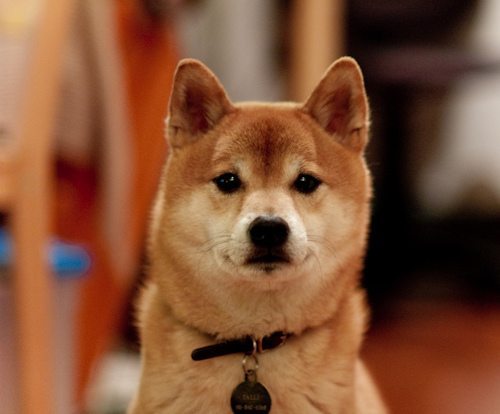Authored by: Stephanie Clarke
 The Shiba Inu is one of the oldest dog breeds to come from Japan. It is also the smallest of Japanese breeds. bred to hunt bear, boar, small wild game and to flush birds. In Japanese, “shiba” means small and “inu” means dog. The Shiba Inu is one of the most popular dog breeds in Japan today.
The Shiba Inu is one of the oldest dog breeds to come from Japan. It is also the smallest of Japanese breeds. bred to hunt bear, boar, small wild game and to flush birds. In Japanese, “shiba” means small and “inu” means dog. The Shiba Inu is one of the most popular dog breeds in Japan today.
The Shiba Inu weighs in at 17 to 23 pounds and stands 13 to 16 inches high. They possess a dense, double coat of medium length. Coat colors include red, black, tan or sesame with a cream, grey or buff undercoat. They may also be white or cream, although this color is not permitted in a show dog. White or cream is required in the following areas of all Shiba Inu – on the sides of the muzzle, on the cheeks, inside the ears, on the underjaw and upper throat, inside the legs, on the abdomen and around the vent sand the ventral side of the tail. In red coats, cream is commonly found on the throat, chest and forechest. In black and sesame coats, a triangular mark is commonly found on both sides of the forechest. Their eyes are dark and triangular, with an intelligent and observing gaze. The tail curls up and over the back. Shiba Inus also have pointed muzzles with dark noses and pointed ears.
A Shiba Inu dog is easy to house train, and is extremely clean. These dogs will often lick their paws to groom themselves, and have been known to go out of their way to avoid mud puddles and dirt. They are fairly quiet and are not prone to unnecessary barking. However, when something is awry, they can let out a unique high-pitched scream. They can also emit this scream to show great joy – such as when an owner returns after an extended absence.
Shiba Inu dogs are ideal companions for singles, active sport types, experienced dog handlers and families with older children. They are extremely animated and spirited. They are also loyal and very trainable, especially when a predictable schedule is applied. The Shiba will do okay in an apartment if he has sufficient exercise. They are moderately active indoors, and do best with an average sized yard. Their waterproof, all-weather coats protect them in both cold and hot weather. Shibas regard themselves as part of the family, so they are much happier living indoors with their “pack”.
Photo: Courtesy of Jason Hargrove Via Flickr (CC by 2.0)









